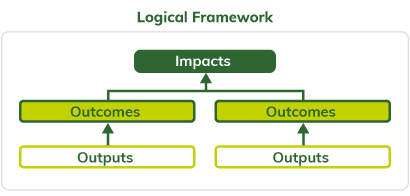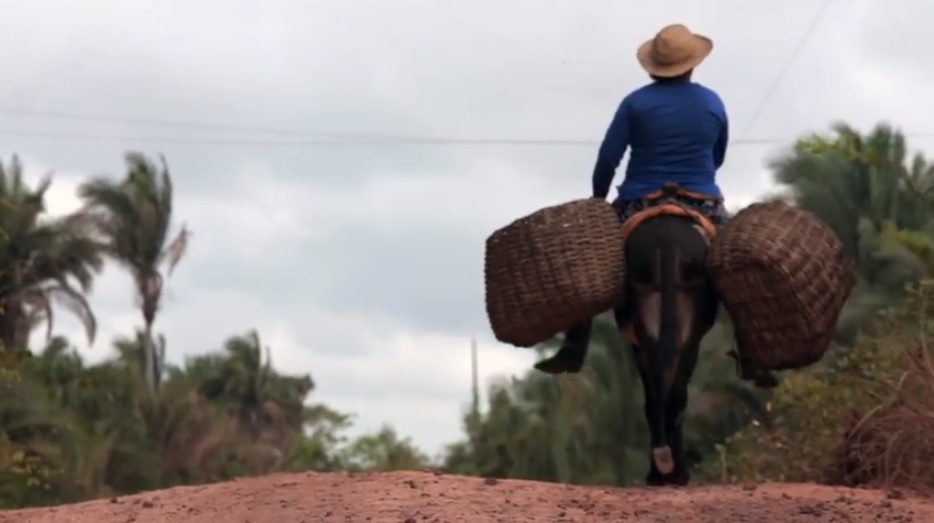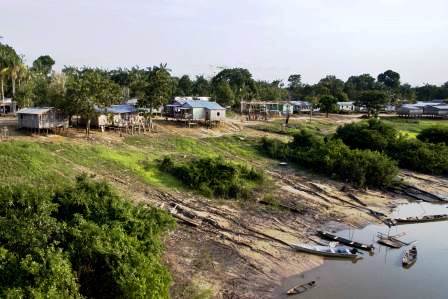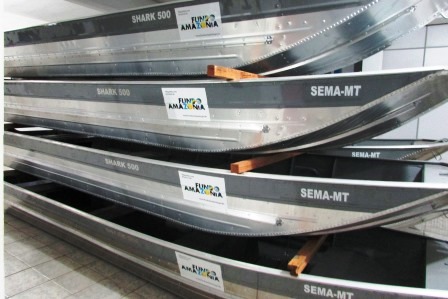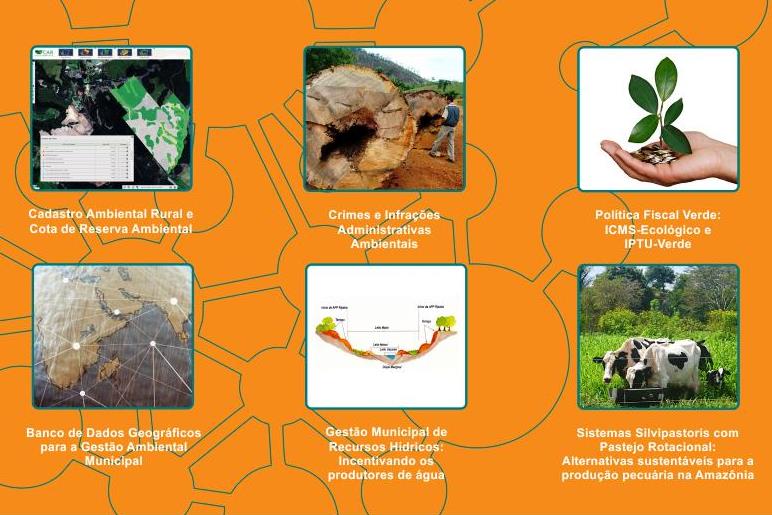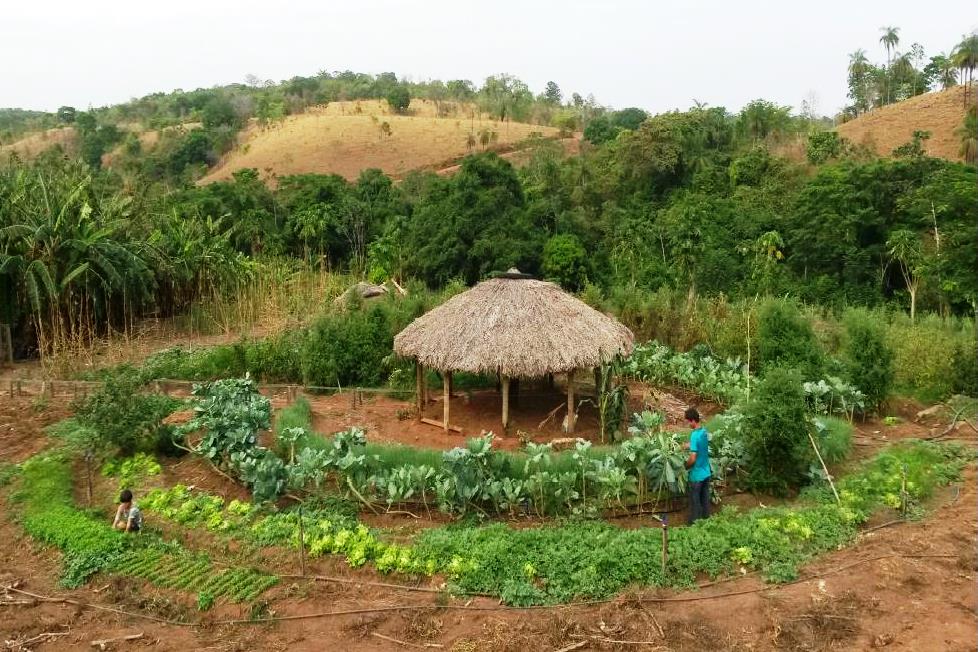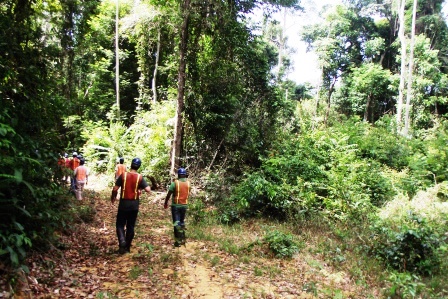Result and impact indicators
Project activities contributed to the results related to the “sustainable production” component (1) of the Amazon Fund’s Logical Framework.
Below are the outcomes of the main agreed indicators for monitoring the predicted direct effects.
Direct effect 1.1 - Identification and development of economic activities for the sustainable use of the forest and biodiversity in community associations
Direct effect 1.2 - Local production arrangements of strengthened agroextractive products, with involvement of community associations
- Revenue obtained from sustainable economic activities (outcome indicator)
Goal: R$ 1,500/year per family | Result achieved: R$ 2,400/year per family
The achieved result of R$ 2,400/year revenue per family is an average value obtained from measuring the economic results of 46 projects, from 2014 to 2018. All monitored projects include projects with higher added value, such as honey, palm heart and fruit pulps production chains, while others are still organizing their value chains and adapting to the markets.
- Number of projects supported under the Amazon PPP-Ecos (outcome indicator)
Goal: 160 | Result achieved: 88
The total amount of support for the projects was estimated at R$ 6 million. Although the maximum value per project was foreseen to be R$ 60,000 for small projects and R$ 90,000 for consolidation projects, it was initially estimated that the proposals received would be of lower values. There were also a larger number of consolidation projects than estimated, resulting in a portfolio of 88 projects.
- Area recovered in use for economic purposes (outcome indicator)
Goal: 1,000 hectares | Result achieved: 1,981
- Area recovered for environmental conservation and/or environmental regularization – regeneration in progress (outcome indicator)
Goal: not defined | Result achieved: 1,018
- Number of families benefiting from projects (output indicator)
Goal: 1,500 families | Result achieved: 3,046 families
Direct effect 1.3 – Expansion of managerial and technical capabilities for the implementation of eco-social projects together with traditional populations
- Number of training workshops in eco-social project management (output indicator)
Goal: 8 | Result achieved: 17
- Number of trained servers effectively using the acquired knowledge (outcome indicator)
Goal: 200 | Result achieved: 5,072
The project directly benefited 3,046 families of family farmers, indigenous, quilombolas, land reform settlers, groups of women and rural youth, contributing to improve the reality of 72 municipalities in the three states covered by PPP-Ecos in the Amazon.
Institutional and administrative aspects
The project was executed in all the planned actions, having involved a large number of civil society organizations selected to be supported by four public calls held by ISPN.
PPP-Ecos sought to act, whenever possible, by adding efforts to conservation actions previously existing in the territory, aiming to achieve its results on a larger scale.
During the five years of project implementation in the Amazon region, constant dialogues and partnerships were established with various actors in the three states covered by the project (Mato Grosso, Tocantins and Maranhão).
The implementation of many of the small projects has contributed to promote and reinforce the principle that good implementation is directly related to the initiatives being able to build support and partnership networks. Thus, several partnerships and alliances were built by the initiatives in the territory throughout its implementation.
Partnerships involving public agencies, such as the Mato Grosso Research, Assistance and Rural Extension Company (Empaer), the National Rural Learning Service (Senar); the Brazilian Micro and Small Enterprises’ Support Service (Sebrae) and several municipal governments in the region were also established.
Additionally, ISPN articulated itself with the National Indian Foundation (Funai), the Brazilian Institute of Environment and Natural Resources (Ibama), the Chico Mendes Institute for Biodiversity Conservation (ICMBio) and the National Institute for Colonization and Agrarian Reform (Incra) in its actions in specific territories, such as indigenous lands, extractive reserves and agrarian settlement projects.
The relationship with public institutions also aimed to comply with the legal and formal requirements necessary for the proper execution of the projects, through the environmental licensing of the supported initiatives.
Risks and lessons learned
Throughout the project implementation, ISPN invited representatives of the states’ environmental agencies to participate in the technical chambers that integrated the selection process of the supported projects.
The contributions of the environmental agencies’ technicians were relevant to improve the understanding of the regional contexts where the projects are inserted, as well as to disseminate the PPP-Ecos and its specificities in the environmental agencies responsible for licensing.
Most of the small projects supported were exempted from environmental licensing or had its licensing simplified.
Another successful strategy was hiring consultants to advise community-based organizations aiming at the good implementation of the program, since many of these organizations had never managed third-party resources.
The fragility of the community-based organizations, combined with a culture of informality present in some municipalities served by the program, motivated this strategy of hiring regional advisories. The difficulties faced by some community organizations also included the lack of suppliers of goods and services in the region and the lack of internet access.
Building community agribusiness was one of the most demanded actions in the PPP-ECOS project portfolio. In general, it was observed that the organizations that anticipated building agribusiness had little knowledge about the process of construction and regularization of agribusiness enterprises. In this scenario, the organizations requested information and training from ISPN to enable this process. The project had planned a set of activities for this purpose, but other actions were necessary.
Another lesson learned concerns the regularization of community agribusiness
enterprises. Hiring consulting services had not been foreseen, but it was important to ensure that the community enterprises could be structured minimally to access the market.
One of the first obstacles faced by the projects was the access to sketches adequate to the sanitary standards for food production, since their regions had no professionals capable of this kind of work. In this sense, the project produced the Guide for development of community agribusiness projects, whose first edition included four types of agribusiness (frozen fruit pulps, house for honey extraction, flour mill and multifunctional kitchen) and the second, already with updated legislation, added three more types of family agribusiness (nuts and coconuts, apis and native stingless bee products and milk with their derivatives), in addition to refitting fruit pulp plants and updating their legislation.
Finally, it was found that the regulatory framework still represents a set of barriers for community groups, because it is a complex legislation, involving environmental, health, labor, tax and fiscal standards, among others.
Sustainability of results
ISPN carried out important work to systematize the knowledge produced by the project, compiling it into publications, which serve as a basis for consultation and guidance for implementing other initiatives of a similar nature.
The sustainability of the results achieved is related to the nature of the actions developed. Most of the actions supported were focused on sustainable production and income generation for local populations. This characteristic contributes so that the results achieved can be sustained over time and even expanded in the most successful cases.
However, it is important to remember that the year 2020 is being severely impacted by Covid-19. In addition to the serious risks to the health and physical integrity of local populations, the scope and long duration of the pandemic pose additional challenges to the sustainability of the results of this and other projects.


